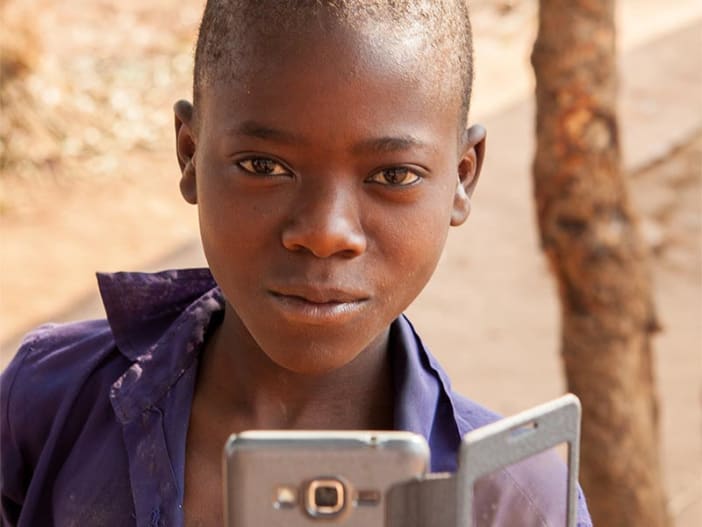Following our last issue on ways of communicating, readers were invited to share their last experiences of using radio as a means of communication. Pamela Clifton-Reitmeier writes in from Chad…
In the village of Mahara in Central Chad, a small crowd watches in anticipation as the radio team sets up microphones and speakers. African music shatters the still air and onlookers begin to move in time to the lively beat. The crowd swells as the villagers abandon their fields and fishing boats and are drawn to the music. Kam-Kam, the radio compere, lifts his microphone to silence the crowd. The competition is about to begin – with a riddle:“On his wedding day, a husband offers his young wife a very special wedding gift: One litre of water, six teaspoons of sugar and a teaspoon of salt. Why?” Murmurs in the crowd. “The water is prayer. The sugar is friendship. The salt is children.” “The husband is a trader. He sells sugar, salt and water.” “The husband wants his wife to prepare tea with sugar and salt for him to be more virile…!”
The village midwife comes up with the answer: “It is to protect their children from dehydration when they get diarrhoea.” “Right answer!” Cheers from the crowd.
Radio Rurale is on the road, travelling from village to village with an entertaining package of competitions, games, songs and poetry. Once a month the radio team goes out to a different region of the country, gathering programme material in 10 different languages. They record competitions, interviews, debates, local music and traditions, then return to the studio to put together daily broadcasts with an educational bias.
The programmes have a local flavour and cover issues of concern such as agriculture, animal herding, water, health, education and protection of the environment. Their popularity is spreading like bushfire. Mass communication in Chad barely exists. Only 18% of the population can read or write. Over 110 different dialects are spoken. Religious and cultural differences between a variety of ethnic groups are great. The school enrolment rate is very low and the drop-out rate is extremely high. The Government set up Radio Rurale as a department of the national Radio Chad in 1986, as it was conscious of the need to reach out to isolated, rural communities scattered across the country.
Radio Rurale recognises that information either does not reach many rural people or does not convince them. Their target audience therefore is the unconvinced or uninterested. They try to learn as much about the traditions of the villagers as they can, and use familiar images – the poetry of the village – to put across their messages.
Radio Rurale is supported by UNICEF, the French Government and FAO.
Pamela Clifton-Reitmeier works with UNICEF N’djamena.









